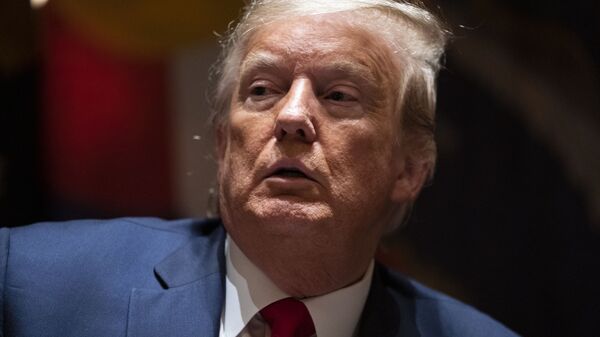Daniel P. Franklin, an associate professor of political science (emeritus), explains whether the president really has the power to hold up federal funding for Michigan.
Sputnik: Trump lashed out at “rogue” Michigan Secretary of State Jocelyn Benson, threatening to hold up federal funding for the state, after mistakenly believing that she intended to send out absentee ballots, while in fact, the official had stated her intention to distribute voter applications for the ballots. How will this situation affect the attitude of the electorate towards Trump, taking into account that at any time, the president can freeze a state’s funding?
Daniel P. Franklin: The White House has corrected its mistake in suggesting that the Michigan SOS had sent out absentee ballots rather than applications for absentee ballots. Therefore, the president's claim that the actions of the secretary of state were contributing to fraud is basically undercut by his own mistake. Nevertheless, there are some potential problems with absentee voting in the sense that the identity of the voter is never really established. However, there is no evidence that there has ever been large scale voting fraud associated with absentee balloting.
First of all, it is not within the president's power to freeze federal funding to a state. Federal spending is authorised by Congress and signed into law by the president. The president is obligated by law to spend money that is appropriated by law. There are some exceptions to this rule, but they have nothing to do with the purpose for which the money was appropriated. Therefore, for example, the president cannot withhold Medicaid spending because he doesn't like the way the state runs its elections. Thus, what the president has threatened to do is almost certainly illegal and would not be sustained by the courts.
Because the president really needs to win in Michigan in order to win reelection in November, it is very risky for the president to get into a fight with the Michigan secretary of state and the Michigan governor who, according to the latest poll, is more popular in her own state than is the president.
Sputnik: Is it about the legality/illegality of the state’s actions in your opinion, or about Trump’s concerns in light of the upcoming elections?
Daniel P. Franklin: Administration of election is almost entirely up to the states. It has been that way since the ratification of the Constitution. There is no legal basis for the president's objection. In my opinion, President Trump believes that mail-in voting will hurt his chances at reelection. That is the basis of his complaint. By the way, there is no evidence to suggest that voting by mail is necessarily to the benefit of the Democrats.
Sputnik: Jocelyn Benson announced on Tuesday morning that all registered voters would be mailed an application to vote by mail in November, adding that “voting by mail is easy, convenient, safe, and secure”. In what cases is the mail voting option generally used?
Daniel P. Franklin: Voting by mail is the rule in only two states, Washington and Oregon. There is no evidence that there are any more problems in those states than the others. All states have some form of absentee voting. There is a varying range of difficulty associated with casting absentee ballots depending on the laws of the state. It wouldn't be difficult for the states to change their laws and make it easier to cast absentee ballots. The problem is in trying to "scale" up the volume of absentee voting if going to the polls is still relatively risky in November (as it is likely to be).



